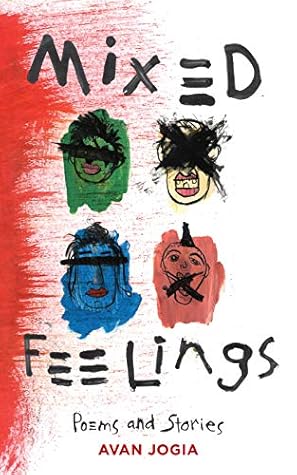More on this book
Kindle Notes & Highlights
I think that outside America, I am just a person. While race is observed or inferred, it’s not usually a topic of conversation and I am able to just exist.
Observed and inferred. We aren’t asking you to keep yourself from thinking, “I wonder where this person is from.” We get that. It’s natural. Fuck, I do it all the time. We are asking you to stop making your curiosity our problem. That’s when it’s exhausting. I just want to exist. Sometimes I haven’t the patience to be a fucking historian. Sometimes I just want to exist.
Sometimes I feel inauthentic in my quests to understand my Indian heritage. Sometimes I don’t feel like I should be allowed to eat shaak and rotli and rice and daal with my right hand, even though that is how I ate those meals with my grandmother. Or to wear a sari to a wedding and take a picture of myself because I look nice. Or to say that I am Indian when I don’t look it, and my connection to my family feels faint and far away. I had to look up how to spell some names of foods to write this e-mail. Just mentioning them makes me feel inauthentic, even though I grew up eating shaak and rotli
...more
I won’t let them make us pick a side. I’d rather be a mixed being with mixed feelings.
My name is not that hard to fucking pronounce. I’m tired of hearing otherwise. And I’m sure you’ve heard it too. All the You get it. Do you know how many times I’ve sat there having said and re-said it, a smile tacked on my face as I listen to someone try to introduce me? All you have to do is ask, “How do I say your name again?” That’s it. Instead I have to hear you bastardise my name in ways that are frankly impressive.
But I felt, and continue to feel, free in that I can be unidentifiable.
The obsession with color in America hit me like a ton of bricks.
One day, my white friends exclaimed very proudly that they didn’t have black friends. I spoke up, reminding them that I was half black. Their response was that they didn’t see me as black. They said I didn’t “talk black” or “dress black” or “look black,” therefore I wasn’t black. That’s when it hit me: I am what people see me as. I can present myself a million different ways, all true and authentic to who I am, but if someone (whether a passerby or an acquaintance) doesn’t see me that way, they will change me to fit a mold that they can justify.
In the third grade, I got into a fight with a girl who did not believe me when I told her my ethnicities. I started crying. I didn’t feel I should have to make other people believe who I am.
I’m physical evidence that love is more than just skin colour. I’m my ancestors’ wildest dreams. I’m the fear of every racist. I am history, I am present, I am future. I am valid and enough, regardless of what naysayers might say. I don’t have to pick sides. I’m two, made into one. I’m proof that borders are just imaginary lines made to separate people. I’m anarchy, in my own way, rebellion against the norm.
Growing up as a mixed person, I felt sort of lost. There were times when I wished I was only Kenyan or only Lao so I could feel closer to either side of my family. Just to have the peace of not being comprised of pieces. To have your simplicity. To feel as one. Instead of no one.
The superpowers of being mixed. The understanding of everyone. The ability to see both sides. All sides. No sides.


